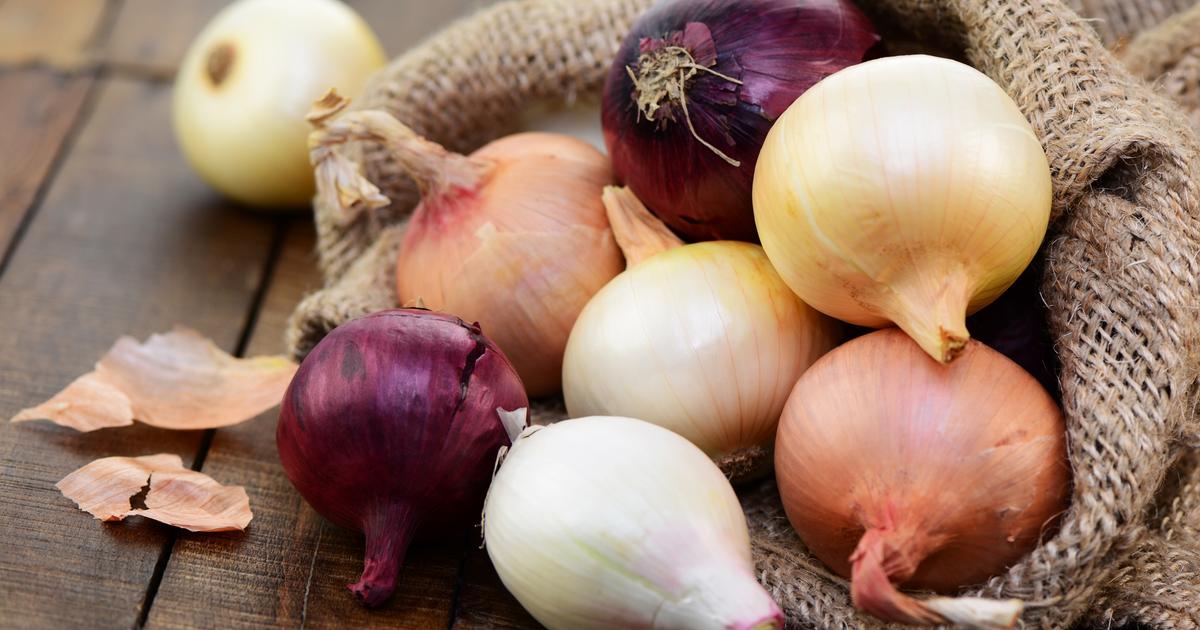Should we write
“onion”
or
“onion”
?
The word has undergone multiple changes over the centuries.
The playwright Théodore Leclercq (1777-1851) wrote it without the letter
"i"
, in his
Dramatic Proverbs
(1835):
"My satin is a strong satin, and this one an onion skin."
Colette wrote it with the other spelling:
“‘Sido’ had no equal when it came to leafing through, counting, the micaceous peels of onions.”
To discover
Crosswords, Sudoku, 7 Letters... Keep your mind alert with Le Figaro Games
The word comes from the popular Latin
"unio"
, that is to say
"unity"
, then
"onion"
, which is linked to
"unus"
,
"one, only one"
, because this plant - to the difference from garlic - has a single bulb.
It was then written as follows:
“unniun”
in the 12th century;
“oingnun”
in the 13th century.
It was only in the 14th century that we could read it in the form of
“onion”
as we know it today.
The Dictionary of the French Academy adopted
onion
in its editions of 1718, 1740 and 1762, then chose
ognon
in 1798. The two spellings
“avoine”
and
“ognon”
existed in turn from the 18th century until the The
“onion”
spelling
became the one adopted in 1935. From then on, tolerance with regard to the
“onion”
spelling ceased to be appropriate.
The Trésor de la langue française notes in summary:
“1718-1762: onion;
1798: onion;
1835, 1878: onion, onion;
1935: onion
.
But why was an
“i”
added to a word pronounced
“ognon”
?
Or on the contrary, why don't we pronounce it as it is written, that is to say phonetically
"ouagnon"
?
We have to go back in time to understand where this spelling peculiarity comes from.
In fact, in old French, the grapheme
“ign”
denoted the palatal
“n”
.
This was a past variant of the
“gn”
sound .
The
“i”
was therefore not pronounced, it served to show the correct pronunciation of the word so that it was not read as for the word
“wildebeest”
.
Also read: Should we write “event” or “event”?
Removing the letter
“i”
One day, the French Academy removed the
“i”
from all words where it was not pronounced.
Thus, until the 17th century, we still found words like
“campagne”
under the spelling
“campaigne”
,
“gain”
under the form
“gain”
and the adjective
“estraigne”
became
“strange”
.
With time and usage, this spelling has been simplified to keep only the
“gn”
.
Certain words, having seen their pronunciation changed such as
“care”
or
“grip”
(for which we pronounce the
“oi”
) or
“spider”
(the sound
“ai”
is also heard), have kept the letter
“i”
.
Others have kept track of the old notation: this is the case of the words
“lord”
or
“onion”
.
“Let us agree: the “i” in onion could have fallen naturally over the centuries, just as “montaigne” became “montagne”, “besoigne” “besogne” or “rignon” “kidney”, and no one would disagree. would have found fault”
, recognizes academician Frédéric Vitoux in a post entitled
“In Praise of the Onion”
.
However.
One part of the French pronounced the word
“ognon”
as
“rognon”
and the other said
“avoine”
as
“stump”
.
As a result, the
“i”
in “
onion”
was not touched to respect current usage.
However, the first "water lily" war, during the spelling corrections of 1990, put the
"ognon"
spelling back on the table, now recognized as not at fault and forcing the
"onion"
spelling to accept the coexistence of its homonym without
“i”
.
We keep the two uses because in certain regions of France, we pronounce
“ouagnon”
.
Also read: Is French spelling really (too) complicated?
Although the new spelling
"ognon"
makes it possible to rectify this
"spelling anomaly"
, thirty years later, it is still the spelling
"onion"
which is preferred by the French, whatever the defenders of the new spelling say.
We leave the final word to Frédéric Vitoux:
“In our markets, market gardeners [...] continue to bravely trace the word “onions” on their slates with chalk.
Their revolt is not elitist.
She is popular.
No doubt, we must support them, we must stand behind them.
In a row, that goes without saying.
And enjoy your meal !"

